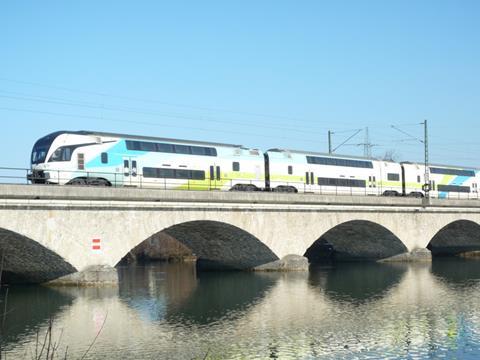
EUROPE: Austrian open access inter-city operator Westbahn Management GmbH has decided to ‘distance itself’ from the Community of European Railway & Infrastructure Companies, accusing CER of attempting to block liberalisation and market opening in the European rail sector. ‘CER is more and more against the overall vision of the EU Commission, and therefore Westbahn can no longer remain in the CER’, said Westbahn CEO Dr Erich Forster.
Notifying CER of its withdrawal on May 9, the company said ‘the last few months have shown that the basic attitude and methods of CER do not conform with the expectations of Westbahn with regards the issues of lobbying and democracy. In addition, newcomers do not get any opportunity to shape the orientation of the rail sector in the direction of liberalisation.’
Westbahn says it joined CER in late 2011 ‘with the aim of bringing more awareness of competition and liberalisation into the monopolistic thinking of CER, to develop ways of opening the market in partnership with the European Commission.’ However, the private operator feels that ‘only certain incumbents provide direction and do not aim at liberalisation and market opening’. This, it says, was ‘glaringly obvious’ in connection with the voting on the Fourth Railway Package in the European Parliament, where CER supported changes to the compromises agreed at the TRAN Committee.
Westbahn says it represents a ‘different understanding [from CER] with regards to the rapid implementation’ of the package. Given that the EU has been working for years towards ‘a liberalisation of policies in all Member States’ it feels that national transport ministers ‘should help to emancipate the incumbents and old railway companies’, rather than resisting change. ‘Incumbents are primarily interested in preserving the existence of their benefits at any cost’, but ‘this is not future-proof and massively harms the railway industry’.
Westbahn believes that ‘CER needs a totally new strategy, with the aim of supporting further policy initiatives at EU level in order to finalise the liberalisation instead of hindering it.’ As well as ‘a reduction in taxpayer burden that would be facilitated by further liberalisation and competition in the rail sector, Westbahn says ‘further innovation’ would help to minimise the environmental impact of the transport sector as a whole.

















